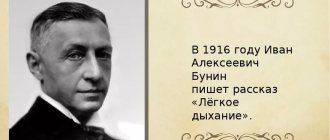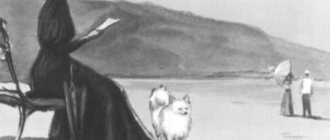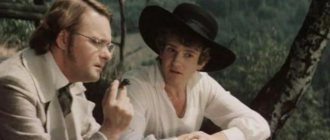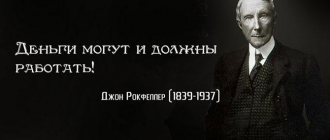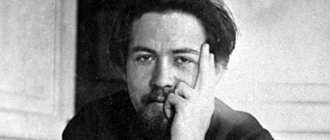History of creation
"Gooseberry" is part of a "little trilogy", which also includes the stories "The Man in a Case" and "About Love".
The idea for the work “Gooseberry” was presented to Chekhov by L.N. Tolstoy, telling a tragicomic story about a St. Petersburg official who saved money for many years for a magnificent uniform, but died without ever wearing it. As a result, the beautiful thing ended up only on his corpse.
The creative history of the creation of the story “Gooseberry” has undergone changes many times. So, initially the hero never married, and achieved his lordly position only in old age. He looked at the first gooseberries with indifference. This is what the rough draft of the plot looked like. But then the author decided to add drama and comical, unlikely “happiness” to his hero eating his favorite berries.
Direction and genre
The story “Gooseberry” was created within the framework of the realistic movement in literature. The author sought to transfer the reality around him into his creation. The images he created are naturalistic and everyday. The situation that became the basis of the plot is a real life incident.
The genre of "Gooseberry" is a story. The work is a laconic story with a small number of characters. There is no specificity, which makes it easy to transfer the story told to any plane.
The essence
Ivan Ivanovich Chimsha-Himalayan, together with his travel companion Burkin, visits his friend, the landowner Pavel Alekhin, due to the heavy rain. During a friendly tea party, Ivan Ivanovich tells the life story of his brother, Nikolai Ivanovich.
The brothers spent their entire childhood on their father's estate, but after his death it was condemned for debt. For Nikolai, this was a terrible blow; he began to associate the estate with a happy childhood, and he spent his whole life trying to acquire his own estate and regain his lost happiness.
Nikolai Ivanovich worked long and hard, saved money, saved on everything and lived from hand to mouth. Because of such a difficult lifestyle, his wife died - an ugly but rich widow whom he married only for her money. However, in the end, Nikolai achieved his goal - he bought himself an estate and planted gooseberry bushes there.
Many years later, Ivan Ivanovich visited his brother, but was unpleasantly surprised and depressed by how his brother had changed. Nikolai turned into a typical lazy and narrow-minded man in the street, thinking only about comfort and a rich table.
Upset by the end of his brother’s journey, Ivan pronounces a monologue about the fact that every happy person needs to be constantly reminded by knocking of a hammer about the suffering of other people whom he prefers not to notice. Read more about the content of the story... (+ review)
The plot of the story “Gooseberry” with quotes
“Gooseberry” summary with quotes from the work:
Ivan Ivanovich and Burkin walked across the field. The village of Mironositskoye was visible ahead. Burkin asked his companion to tell the previously promised story. However, it suddenly began to rain, and the men decided to take shelter from the bad weather at Alekhine’s in Sofiino. The owner met them on the threshold of one of the barns at work - the man was covered in dust, in dirty clothes. Alekhine was very happy with the guests and invited them into the house.
Having gone to the bathhouse, the guests and the owner settled down in armchairs. The maid served tea with jam, and Ivan Ivanovich began the promised story.
Ivan Ivanovich had a younger brother, Nikolai Ivanovich, “two years younger.” Their father, Chimsha-Himalayan, left them “hereditary nobility”, as well as an estate, which was taken away for debts soon after his death.
The boys spent their entire childhood in the village. Having served “in the government chamber” since the age of nineteen, Nikolai Ivanovich missed his freedom. He had a dream to buy a small estate, where gooseberries would certainly grow. The man constantly read “household books”, advertisements for the sale of land, and dreamed of how he would spend time in the village.
Ivan Ivanovich, although he loved his brother, did not share his desire. “It is commonly said that a person only needs three arshins of land. But three arshins are needed by a corpse, not a person.”
Trying to save as much money as possible, Nikolai “didn’t eat enough, didn’t drink enough,” and dressed “like a beggar.” When he was forty years old, the man married an old, ugly widow with money for the same purpose - to buy an estate with gooseberries. He put her money in the bank in his name, and “kept the woman from hand to mouth.” The wife began to waste away and died three years later.
Nikolai Ivanovich, without blaming himself for the death of his wife, soon bought “one hundred and twelve acres with a manor house, with a manor house, with a park, but no orchard, no gooseberries, no ponds with ducks; there was a river, but the water in it was the color of coffee,” since there were factories nearby. However, Nikolai Ivanovich was not sad: “he ordered twenty gooseberry bushes for himself, planted them and began to live as a landowner.”
Last year Ivan Ivanovich went to visit his brother. Nikolai Ivanovich “has grown old, plump, flabby.” “This was no longer the former timid poor official, but a real landowner, master.” Nikolai Ivanovich was already suing society and factories, forcing the men to call themselves “your honor.” He developed an “arrogant” conceit, he began to speak “only the truth,” like a minister: “Education is necessary, but for the people it is premature.” Moreover, he called himself a nobleman, as if he had forgotten that their grandfather was a man, and their father a soldier.
In the evening, gooseberries were served, “picked for the first time since the bushes were planted.” Nikolai Ivanovich, tearing up, ate one berry with excitement, admiring how tasty it was, although in fact the gooseberry was hard and sour. Ivan Ivanovich saw before him a “happy man”, “who had achieved his goal in life”; he was “overtaken by a heavy feeling” close to despair. All night Ivan Ivanovich heard Nikolai Ivanovich get up and take a gooseberry each.
Ivan Ivanovich reflected on the fact that we constantly see happy people, but know nothing about those who suffer. “Obviously, the happy feel good only because the unfortunate bear their burden in silence.” Happy people live as if in “hypnosis”, not noticing much around them. “It is necessary that behind the door of every contented, happy person there should be someone with a hammer and constantly remind them by knocking” that sooner or later trouble will happen. Ivan Ivanovich realized that he, too, lived contentedly and happily. He spoke the same words as his brother, taught “how to live, how to believe, how to govern the people,” but he was no longer at the age to change anything.
Ivan Ivanovich suddenly stood up and approached Alekhine. He began to shake the owner’s hands, asking him not to calm down, to continue doing good, because the meaning of life lies in this, and not in personal happiness.
Then everyone sat and was silent. Alekhine wanted to sleep, but he was interested in the guests. He did not delve into what Ivan Ivanovich said - the doctor’s words had nothing to do with his life.
Finally the guests went to bed. “The rain was hitting the windows all night.”
Chekhov deeply felt the contradictions in society. Condemning the lordship, he was rightly indignant at the lack of will of those who were subordinate to the masters. You can learn more about this by reading the summary of “The Slut.” The work was created in 1888. At this time, Chekhov gradually moved away from writing humorous stories and worked in a realistic style.
The main characters and their characteristics
The images in the story “Gooseberry” are few in number, but original for Russian literature:
| hero name | characteristic |
| Ivan Ivanovich Chimsha-Himalayan | elderly veterinarian nobleman. a character-reasoner who expresses the writer’s own thoughts. social activist. believes that every person should direct all his strength to helping others. in this regard, he condemns the selfish happiness of the average person, which his brother Nikolai found. |
| Nikolay Ivanovich Chimsha-Himalayan | official of the treasury chamber. nobleman. a diligent worker and a kind person. For most of his life he was obsessed with the idea of acquiring his own estate. For this he went to any lengths and contributed to the death of his wife. Having bought the estate, he turned into a carefree landowner who is not interested in anything other than his own well-being. |
| Burkina | former teacher. friend and interlocutor of Ivan Ivanovich. |
| Pavel Konstantinovich Alekhin | a poor, hard-working landowner. forced to work hard to pay off all his debts. tired of constant work, wants to change something in his life, but cannot. |
Subject
Theme of the story by A.P. Chekhov’s “Gooseberry” is truly interesting to every person considering his place in life:
- Dream
is the main theme of the work. Chekhov shows us that not every dream is beautiful. Nikolai, who dreams of an estate, suffers himself and makes the people around him suffer. The dream turned into mania and became the hero's obsession. - Happiness
- Using the example of Nikolai Ivanovich, the writer condemns a person’s desire for personal happiness. Chekhov demands that people give up selfishness and remember that while someone enjoys a carefree life in prosperity and warmth, those around him who are less fortunate are constantly suffering. - Little Man
- The author deconstructs and cruelly ridicules the image of the little man. If Pushkin and Gogol always portrayed the little man as an unfortunate victim, then Chekhov portrays to us the image of a cruel egoist who killed his wife in order to eat gooseberries every day. - Landscape
– The surrounding nature in the story harmonizes with the mood of the characters and sets the mood for the reader. As Burkin and Chimsha Himalayan walk across the field, the landscape around them is cheerful and bright. But as the narrative approaches the story of Nikolai Ivanovich, rain begins to gather. At the end of the story, the weather completely deteriorates, the sky is obscured by clouds and raindrops are drumming on the windows. The role of the landscape in the story “Gooseberry” is not only to demonstrate the mood of the story, but also to speed up the plot: the rain forced the friends to get together and have a heart-to-heart talk.
Composition
The plot of “Gooseberry” is based on the “story within a story” principle. Nonlinear storytelling helps the author deepen the meaning of the work.
In addition to the story of the main character of the story, Nikolai Ivanovich Chimshi-Himalayan, there is another reality in which Ivan Ivanovich, Alekhine and Burkin live. The last two give their assessment of what happened to Nikolai Ivanovich. Their ideas about life are the most common version of human existence. It is important to pay attention to the exposition of the story, which contains a detailed description of nature. The landscape on Nikolai Ivanovich’s estate confirms the spiritual poverty of the newly minted master.
Problems
The problems of the story “Gooseberry” have been and will be relevant, because it addresses issues that are universal for every time.
- Selfishness
- Nikolai Ivanovich devoted his entire life to achieving individual happiness, without caring about others. In the end, he achieves his goal, but only goes deeper into himself and his worries. The brother notes Nikolai Ivanovich’s self-satisfaction and pride, which was not there before. Indulging in selfishness made the hero worse. - Indifference
- Chekhov paints an image of a typical man in the street, mired in his wealth and turned away from other people. The writer condemns this way of life; he believes that a person should always think about other people. Indifference plunges him into a state of spiritual blindness. - Personality degradation
- The author shows us the paradoxical nature of life. His hero, going towards his dream, does not develop, as would be the case with some other writer, but, on the contrary, degrades. Having achieved the goal of his whole life, Nikolai finally sinks to the bottom, turning into a parody of a person. - Ways to achieve the goal
- Nikolai made monstrous sacrifices and even atrocities in order to fulfill his dream. However, all this was hardly worth the result.
main idea
Chekhov deconstructed the cliche, traditional not only for Russian but also for world literature, about a little man who wants to build his own house. If this desire only evokes approval among other writers, Chekhov shows that there is nothing romantic in this dream, that the path to this dream is not always correct and honest, and its outcome is often dubious. But the main idea of the story “Gooseberry” is that even the ideals of a little man are immoral, even his quiet happiness, paradise in a hut is just the petty egoism of a nonentity. Yes, he doesn’t want mountains of gold, but just like the rich man, he doesn’t care about others, he is just as immoral and greedy, just as useless and even harmful to society. This is what Chekhov wanted to say in the story “Gooseberry”: not only the paths of achievement, but also the goals of a little man are immoral in essence. They only humiliate his human dignity.
The main character, Ivan Ivanovich, expressed the meaning of the story “Gooseberry” in the phrase:
There is no happiness and there should not be any, and if there is meaning and purpose in life, then this meaning and purpose is not at all in our happiness, but in something more reasonable and greater. Do good!
The meaning and moral of "Gooseberry"
There must be a big, important matter that can help everyone in these endless spaces in which it has always been so difficult for a person to survive. But Chekhov would not have been Chekhov if he had completely and completely sided with one hero. In the author's ironic remarks and wittily noted details, we notice that the words of the restless, anxious Ivan Ivanovich do not exhaust the whole truth, the whole meaning of human existence. That, for example, the lovely maid and the beautiful room in which the heroes find themselves speak about their truth - the happiness of ordinary human life. He also has the right to be!
But for some reason the writer talks about noble portraits - they inspire him with the idea of a different, high, but happy life. They also oppose everything that is philistine and wretched. Against their background, Ivan Ivanovich’s words also seem to flash some kind of limitation, an inability to see the world in its entirety. But the noble, high way of life died long ago. We are left in the world of small, limited people with their ripe gooseberries. Reading some passages, you seem to feel your teeth on edge, the sour taste of this berry and slightly wince - no, gooseberries are not tempting. But Pelageya, the beautiful portraits and the beautiful room are seductive. You can't fool human nature.
A funny and apt Chekhovian detail - already falling asleep in cozy, clean chambers after a hard day with rain and hunting in the mud, Ivan Ivanovich’s roommate feels the acrid, unpleasant smell of burnt tobacco emanating from the narrator’s pipe. And just as the owner of this pipe is restless, preventing people from enjoying the joys of life, disturbing the soul with big, scary ideas, so his tobacco poisons the comfort of the evening twilight.
What does it teach?
This story forces the reader to be prudent, think for himself and not get hung up on ghostly images of the past. The author questions the importance of material well-being, declares the need for compassion and mutual assistance in society, condemning philistine indifference. This conclusion can be drawn after reading the story “Gooseberry”.
The ideals of personal happiness and a quiet life away from the bustle are deeply disgusting to the author, because they do not contain the greatness that only one person is capable of. It turns out that in the quiet pool of prosperity, he destroys his natural potential and contributes to the degradation of society. This is the moral of A.P. Chekhov and his story "Gooseberry".
Meaning
The main idea of A.P. Chekhov is expressed in Ivan Ivanovich’s phrase that one cannot rejoice when others feel bad. You can’t turn a blind eye to other people’s problems; it’s important to remember that trouble can knock on any home. It is important to be able to respond to requests for help in a timely manner, so that they can help you in difficult times. Thus, the author expresses his contempt for constant peace and stagnation in human life. Happiness, according to Chekhov, is a movement, an action, aimed at doing good and fair deeds.
The same idea can be seen in all parts of the trilogy.
